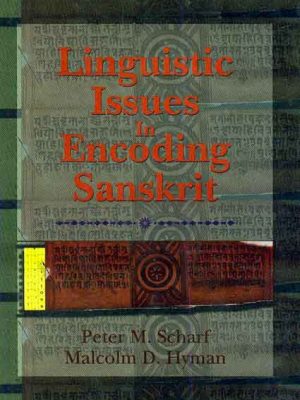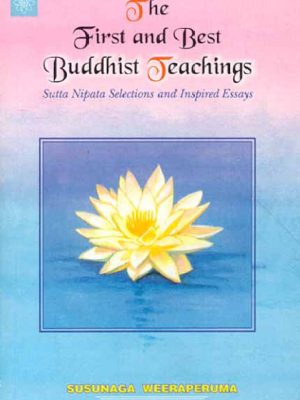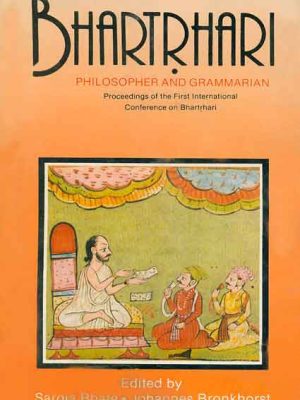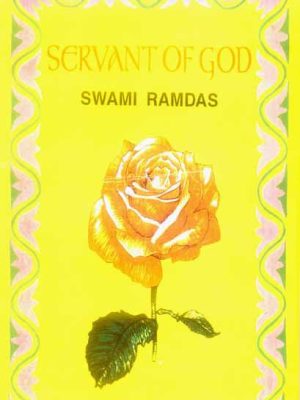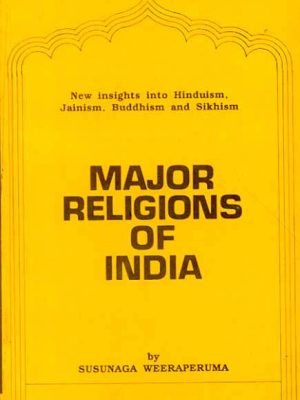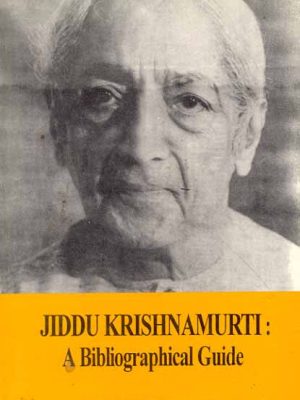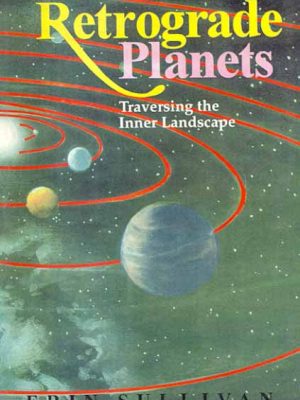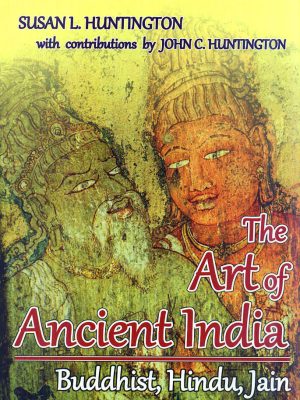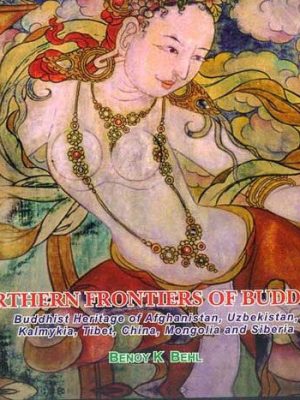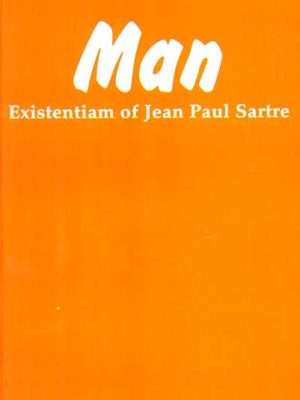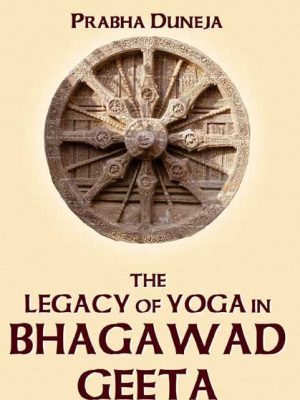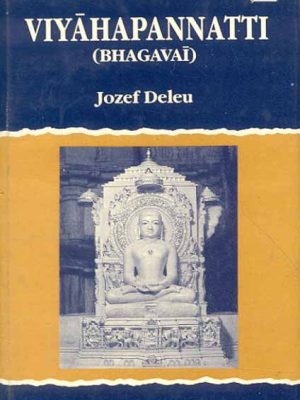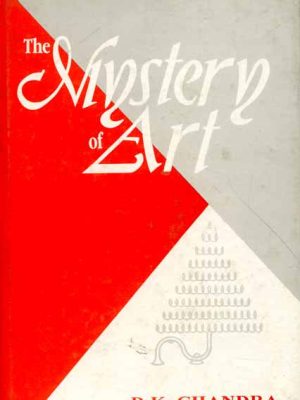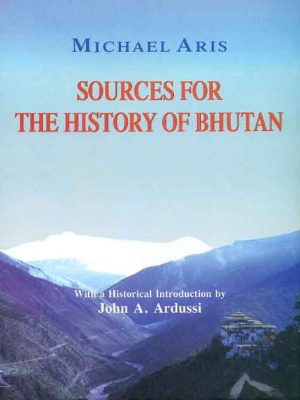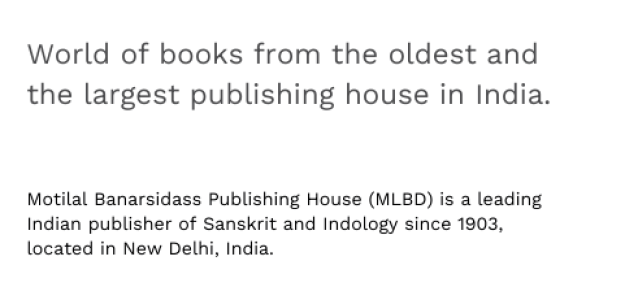
Motilal Banarsidass Publishing House
-
The Art of Ancient India: Buddhist, Hindu, Jain
The Art of Ancient India: Buddhist, Hindu, Jain
To scholars in the field, the need for an up-to-date overview of the art of South Asia has been apparent for decades. Although many regional and dynastic genres of Indic art are fairly well understood, the broad, overall representation of Indiaês centuries of splendor has been lacking. The Art of Ancient India is the result of the authorês aim to provide such a synthesis. Noted expert Sherman E. Lee has commented: –Not since Coomaraswamyês History of Indian and Indonesian Art (1927) has there been a survey of such completeness.” Indeed, this work restudies and reevaluates every frontier of ancient Indic art _ from its prehistoric roots up to the period of Muslim rule, from the Himalayan north to the tropical south, and from the earliest extant writing through the most modern scholarship on the subject.
This dynamic survey-generously complemented with 775 illustrations, including 48 in full color and numerous architectural ground plans, and detailed maps and fine drawings, and further enhanced by its guide to Sanskrit, copious notes, extensive bibliography, and glossary of South Asian art terms-is the most comprehensive and most fully illustrated study of South Asian art available.
The works and monuments included in this volume have been selected not only for their artistic merit but also in order to both provide general coverage and include transitional works that furnish the key to an all encompassing view of the art.
An outstanding portrayal of ancient Indiaês highest intellectual and technical achievements, this volume is written for many audiences: scholars, for whom it provides an up-to-date background against which to examine their own areas of study; teachers and students of college level, for whom it supplies a complete summary of and a resource for their own deeper investigations into Indic art; and curious readers, for whom it gives a broad-based introduction to this fascinating area of world art.
₹4,500.00 -
The Legacy of Yoga in Bhagawad Geeta: The Classical Text of Srimad Bhagawad Geeta in Skt, its Romanized transliteration, Eng Translation, Lucid Commentary and Indexes
The Geeta is an intimate dialogue between God and man. The God-incarnate is Lord Krishna and man is represented by the Mahabharata hero Arjuna. It is intimate because the esoteric wisdom imparted therein, says the Lords, is “is more secret than secrecy itself” (XVII. 63).
A great battle is to ensue between the two royal clans of Kauravas and Pandavas. Arjuna requests
Krishna, who is acting as his charioteer, to take him between the two standing armies so that he
may have a look at those who have gathered to fight with him. There Arjuna is overcome with grief and refuses to raise his bow against his respected gurus and elders, and other kith and kin. At this critical juncture Lord Krishna explains to him what is right and what is wrong, and how by adhering to dharma a person can earn the highest virtue.
Every human heart is like a battlefield of good and evil forces. At times a person is not able to
decide the right course of action. He is deluded and confused. When confronted with such a
situation, he can turn to the Geeta, it will not fail him. The book therefore is of universal appeal which offers satisfactory solution to basic human problems. Whatever page you turn, and whichever verse you read, it is bound to elevate and inspire. It is not the book of a particular race or religion but the common heritage of the entire mankind.
The general theme of the dialogue is the realization of the Supreme-Self through the constant practice of Yogic entity. Sri Krishna declares that those who strive, endowed with the spirit of selfless action, Yajna and Yoga, perceive the Lord dwelling in the self. Sri Krishna gives a
definite promise of His grace in the words, “Resigning all the Dharmas, seek refuge in Me
alone. I shall liberate you from all sins Grieve not.”
Review(s)
The explanations of verse are elaborate and elegant … . Laced with inspiring anecdotes, it is a remarkable commentary which will enlighten the learned as well as the laymen, in India and also in foreign lands. – BALDEO SAHAI Fellow, Indian National Science Academy
Mrs. Prabha Duneja has presented the universal and timeless message of The Bhagawad Geeta in a scholarly yet practical way. – Swami Prabuddhananda, Vedanta Society of Northern California, USA
The Legacy of Yoga in Bhagawad Geeta is a unique scholarly achievement and one, which will greatly benefit all who encounter it. I heartily recommend it. – Prof. Norris W. Palmer, Ph.D. Saint Mary’s College of California, USA
From the moment, I picked up Prabha Duneja’s translation of The Bhagawad Geeta, I knew this was an inspired work. Not only is her rendition an academic contribution in clear English but it retains the power of the original Sanskrit. – Prof. Sujan Burgeson Ph.D., Yuba College, California, USA
About the Author(s)
Founder and president of the Geeta Society, is also an active member of the Women’s Federation for world peace and the United Nations Association, USA. She is also the chairwoman of the Women’s Interfaith Circle of Service/CC-URI and a recipient of the Global Citizen award, given by UNA-the Commonwealth Club San Francisco, the Parliament of World’s Religions, schools, universities, churches, mosques, and interfaith conferences.
Mrs. Duneja, a graduate from the Sanskrit University of Kurukshetra, is a well-known Vedic scholar and a devotee of Lord Krishna. She is the author of the Legacy of Yoga in Bhagawad Geeta, Mantra and the Modern Man, Bhagawad Geeta: The Gospel of Timeless Wisdom, and has also recorded several series of lectures on the science of yoga and meditation, the secret powers of mantra, and the Bhagawad Geeta. For more information visit her website: holygeeta.org and contact her at duneja@aol.com
₹500.00 -
Viyahapannatti (Bhagavai): The fifth Anga of the Jaina Canon
Viyahapannatti (Bhagavai): The fifth Anga of the Jaina Canon
The Viyahapannatti (Vyakhyaprajnapati) or Bhagavai (Bhagavati) is the fifth Anga of the Jaina Svetambara Canon. It is as the title says a Proclamation of Explanations’ viz. of explanations given as a rule by Mahavira the founder of Jainism, in answer to questions raised by his disciples in most cases Goyama Indabhui. Experts have described this monumental work as an omnium gatherum, a tohu bohu etc.: its questions and answers, as a matter of fact, deal with a bewildering variety of topics, embracing all the important domains of the Jaina doctrine; moreover its teachings are presented in many different forms.
₹595.00 -
The Mystery of Art
The Mystery of Art
The Mystery of Art lets the forms of art tell their own tale. Instead of analyzing the art expressions this narrative work invites the reader to re-discover the functions of art. The observation of the art-scenes starts with the present and winds its way backward through time and history. In the course of this journey the different art-expressions reveal themselves in a novel light.
About the Author(s)
D K Chandra
₹295.00The Mystery of Art
₹295.00 -
Sources for the History of Bhutan
The four works included in this collection have enjoyed a rather chequered career. They originally formed the second volume of the doctoral thesis Michael Aris submitted in 1978 to the University of London. They have been included because of their value as crucial source material on the formative era of Bhutanese history, as they cover the entire period leading to the full emergence of the Bhutanese theocracy. Their relative brevity as compared with the other major works relevant to this period further suggested the convenience of including them as a group of inter-related ‘minor’ texts.
While the first two works in this collection have never before been available to modern scholars, and are indeed hardly known even in Bhutan, the next two (which include a text translated from portuguese) have been partially known from the works of John Claude White (Sikkim and Bhutan-Twenty-one years on the North-East Frontier 1887-1908, London) and C. Wessels (Early Jesuit Travellers in Central Asia, The Hague 1924.
₹595.00
